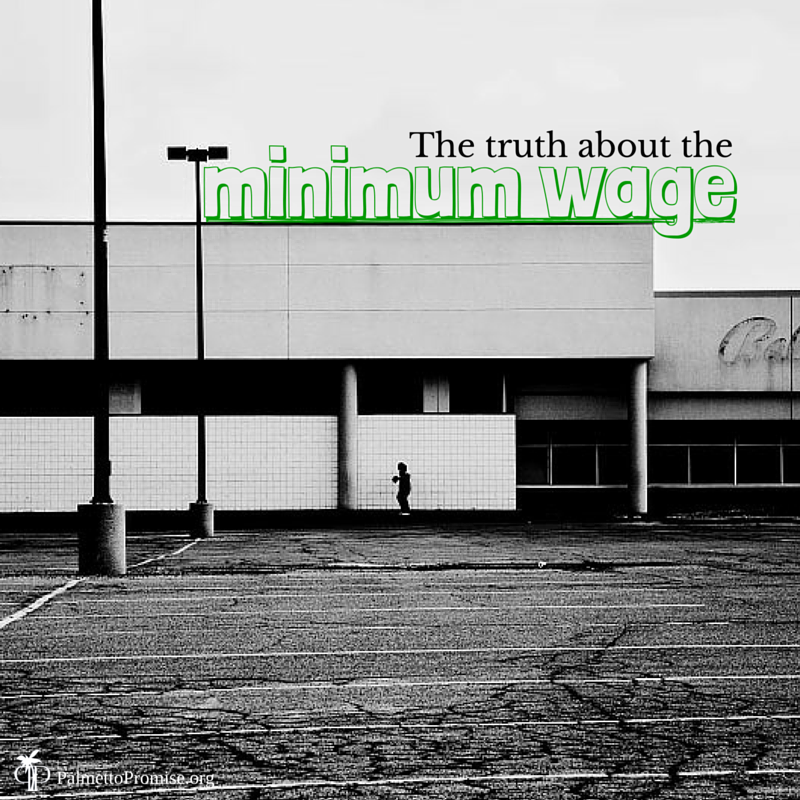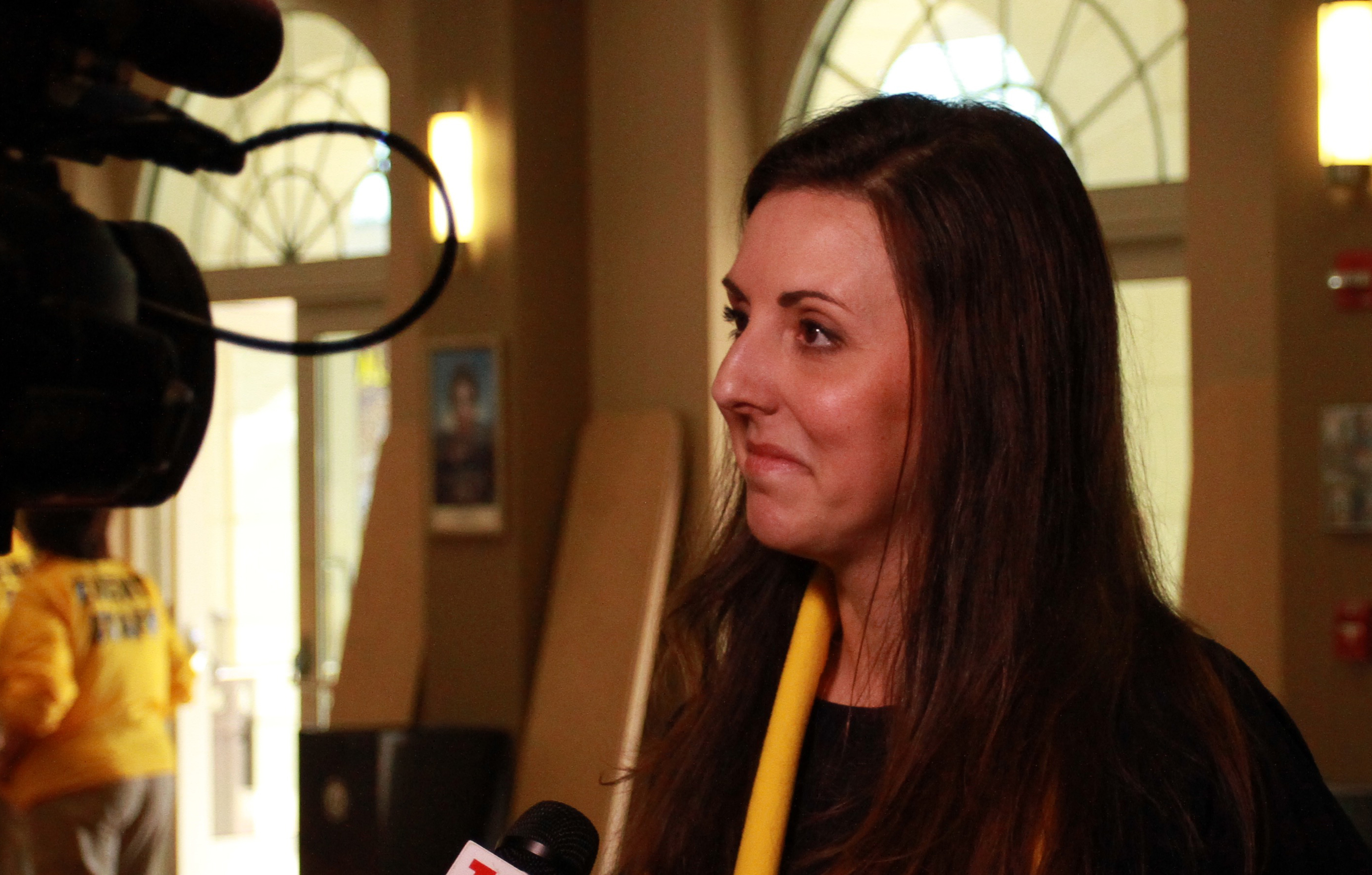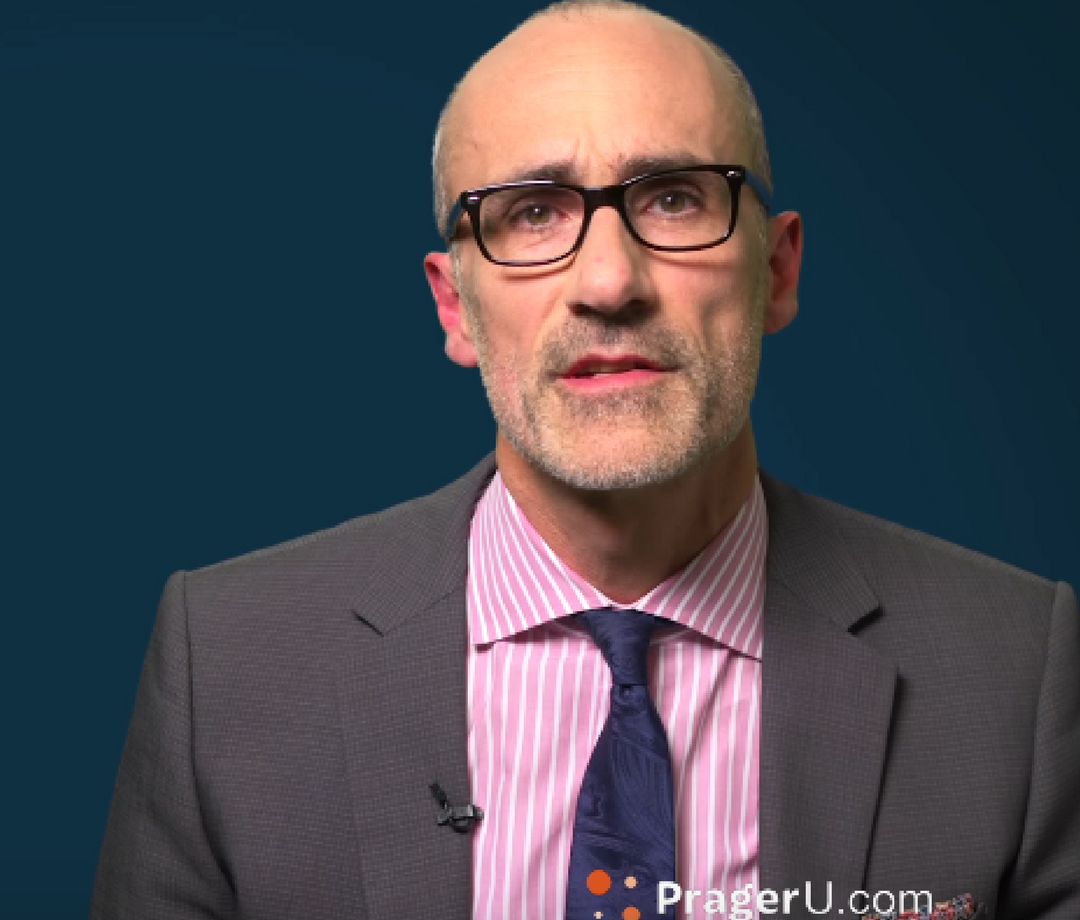Broken Windows and the Minimum Wage
Economics is a logical science. Economists use mathematics, graphs, and plain logic to map out the consequences of policies. Sounds simple, right? Well let’s be honest, is anything in life as simple as it sounds? One way that economists illustrate the principle that policies have complex, unintended consequences is with what they call the broken window fallacy.[i]
Imagine with me that Joe, Columbia’s local small business muffin man, walks to his place of business only to find his store-front window shattered by a brick. Because of this unfortunate incident, Joe confronts immediate consequences.
To begin, Joe must pay someone to replace the window. Additionally, Joe’s energy bill will rise as he cranks the AC to counteract the famously hot Columbia heat entering through the shattered window. One of his employees will have to use company time to schedule the repair and to clean up the mess. All of this lost money and time will cut into Joe’s profits, and may force him to cut back on muffin production.
But are these all the consequences? Many people might be tempted to say “yes.” This is what noted economist Thomas Sowell[ii] labels as Stage One Thinking—identifying and thinking of only the immediate, intended consequences of policies. However, all policy decisions have downstream effects.
Unintended consequences abound because of Joe’s broken window. The window repair man will make more money, competing muffin shops might garner more visits, Joe’s ingredient providers won’t receive as big an order from Joe because of the cut back on muffin production to name just a few. This is what makes economics so incredibly complicated—it’s a black hole of endless consequences!
Unfortunately, too often politicians fall into Stage One Thinking. Often, it’s well-intentioned, because something sounds great at first…or more cynically, maybe the adverse consequences won’t kick in until after the next election. Either way, the national crusade to raise the minimum wage exemplifies this folly.
The immediate consequences of a minimum wage hike—they say—are that low-income workers will receive a pay raise, they will pump that money back into the economy, business profits will grow, government revenue will jump because of the influx in wealth, and all will be right with the world. This seems like very logical thinking; however, this is just Stage One Thinking, and years of data exist to prove its deceptiveness.
Last year, the CBO released a study[iii] revealing that over half a million jobs will be lost if the minimum wage is increased to the proposed $10.10. Further, researchers from the American Action Institute and the Manhattan Institute concluded that even more jobs (around 6.6 million by 2020) will be lost with an increase to $15.[iv] Let’s think logically: employers are required to pay employees more, employers have less money to pay additional employees, so employers cut hours and jobs to make up for the losses. Yes, certain people benefit, but most people don’t.
Young workers are especially affected by minimum wage increases.[v] If they’re paying employees an artificially high wage, employers will only seek out the most qualified and experienced candidates, which are rarely younger workers who are seeking first-time on-the-job training.
[popuppress id=”3155″]
This could be tough on the already struggling young working class in South Carolina. About 25% of South Carolinians between the ages of 16-19 are unemployed, which is well above the nationwide average of 18%. Even worse, over one-third (33.2%) of African American teens searching for jobs cannot find one.
As Arthur Brooks[vi] of The American Enterprise Institute explains, “It is never right to deny people at the bottom the opportunity to gain the initial work experience they need to become attractive to employers, transition into higher-paying jobs, and build a better future for their families.”
Here are a few more pieces of evidence[vii] demonstrating the necessity of thinking beyond the first stage:
- A minimum wage increase hits small businesses harder than big businesses.
- A minimum wage increase provides motivation for businesses to ship more jobs overseas.
- A minimum wage increase raises prices, offsetting the wage increase.
- A minimum wage increase reduces the number of opportunities for unexperienced workers to gain valuable experience.
All over the county, many people are feeling the effect of Stage One Thinking about minimum wage.[viii] “People like me are finding themselves in a tougher situation than ever,” said Shah Burnham, a now former small business owner in Seattle. Shah had to close down her pizza shop in August because she couldn’t afford to pay her employees the newly-mandated $15 minimum wage in Seattle.
“I absolutely am terrified for my employees. I have no idea where they’re going to find jobs, because if I’m cutting hours, I imagine everyone is across the board,” Shah relayed. Shah isn’t alone…examples abound of the adverse effect a raised minimum wage has on small businesses.[ix]
To put it plainly, a minimum wage increase isn’t right for South Carolina. The data is clear—raises to the minimum wage destroy job creation, and hurt the very people it intends to help. Though increasing the minimum wage isn’t the answer, at Palmetto Promise, we’re working on concrete, realistic solutions to help all South Carolinians prosper:
- Develop our natural resources to keep energy affordable,
- Find new state-based ways to make health care accessible,
- Expand proven, effective education options for families,
- And create a business climate of fair taxes and reasonable regulation.
Lots of policies may seem right at first glance; however, the long-term consequences can look very different. Just break a few hypothetical windows and you’ll soon find out.
Footnotes:
[iv] American Action Institute and Manhattan Institute Study
[v] Employment Policies Institute Study
[vii] Washington Policy Center Evidence
[viii] Owner of pizza shop says new Seattle minimum wage law is forcing her to close




